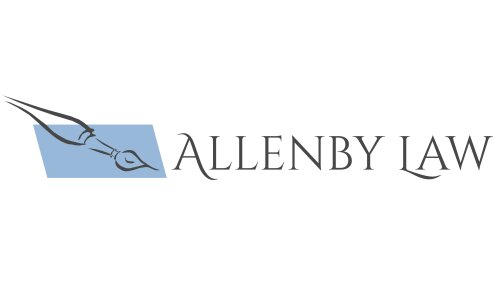Best Franchising Lawyers in Fort McMurray
Share your needs with us, get contacted by law firms.
Free. Takes 2 min.
List of the best lawyers in Fort McMurray, Canada
About Franchising Law in Fort McMurray, Canada
Franchising in Fort McMurray, Canada is a popular business model that allows individuals to own and operate a business under the brand and operational framework of an established company. This arrangement provides franchisees with the benefit of a recognized brand, training, and support, which can greatly enhance the success rate compared to starting a business from scratch. However, franchising also comes with specific obligations and legal requirements that need to be understood before entering into such agreements.
Why You May Need a Lawyer
There are several scenarios where legal advice is crucial when engaging in franchising. These include reviewing and negotiating franchise agreements, understanding disclosure requirements, resolving disputes between franchisors and franchisees, and ensuring compliance with both federal and provincial regulations. Legal expertise is also important in protecting intellectual property and navigating any litigation issues that may arise.
Local Laws Overview
Franchising in Fort McMurray is governed by both federal and provincial laws. Key pieces of legislation include the Arthur Wishart Act (Franchise Disclosure), which mandates franchisors to provide comprehensive disclosure to potential franchisees. This includes financial statements, fees, obligations, and any past bankruptcies. Understanding the implications of the Competition Act, which prevents anti-competitive practices, is also pertinent. Additionally, potential franchisees must be aware of contractual laws and employment standards applicable within Alberta.
Frequently Asked Questions
What is the Arthur Wishart Act and why is it important?
The Arthur Wishart Act governs the disclosure obligations of franchisors in Alberta. It ensures that potential franchisees receive detailed information about the franchise before they commit, providing protection and promoting transparency.
Are there registration requirements for franchisors in Fort McMurray?
While Alberta does not require franchisors to register their franchise documents, they must provide a disclosure document to potential franchisees at least 14 days before any agreement is signed or consideration is paid.
What should I consider in a franchise agreement?
Key elements include the territory rights, fees and royalties, duration of the agreement, renewal terms, training and support, and conditions for termination. It is advisable to have a lawyer review the agreement.
Can a franchisor terminate my franchise agreement without notice?
Termination terms vary by agreement, but generally, immediate termination requires a material breach of contract. Otherwise, franchisors must usually provide prior notice and an opportunity to rectify the issue.
What legal remedies are available in case of a dispute?
Depending on the nature of the dispute, remedies may include mediation, arbitration, or litigation. Legal advice is essential to determine the best course of action based on the specific circumstances.
How does non-compete clause enforcement work in Fort McMurray?
Non-compete clauses must be reasonable in terms of duration, geographical area, and scope to be enforceable. Courts typically scrutinize these clauses closely to ensure fairness.
What is the role of the Competition Act in franchising?
The Competition Act seeks to prevent anti-competitive practices by franchisors, ensuring a fair marketplace. It addresses issues such as price-fixing and market allocation.
Is franchising a guaranteed way to succeed in business?
While franchising offers benefits like brand recognition and support, it does not guarantee success. Prospective franchisees should conduct thorough research and seek legal and financial advice.
What are the financial implications of owning a franchise?
Franchisees may face costs such as initial franchise fees, ongoing royalties, advertising fees, operating expenses, and renewal fees. A clear understanding of these costs is crucial before signing an agreement.
Can I sell my franchise business if I choose to exit?
Yes, but terms and conditions for transferring ownership will be specified in the franchise agreement. Consent from the franchisor is typically required, and this process may involve fees.
Additional Resources
Useful resources for those interested in franchising include the Canadian Franchise Association (CFA), which offers educational materials and industry insights. The Alberta Government's Business Link provides support for franchise businesses, and legal guidance can be sought from firms with experience in franchise law.
Next Steps
If you are considering entering a franchise agreement or need advice related to franchising, it is prudent to consult with a lawyer specializing in franchising law. They can provide detailed guidance tailored to your specific situation. Start by gathering all relevant documents and booking a consultation to discuss your objectives and concerns with a legal professional.
Lawzana helps you find the best lawyers and law firms in Fort McMurray through a curated and pre-screened list of qualified legal professionals. Our platform offers rankings and detailed profiles of attorneys and law firms, allowing you to compare based on practice areas, including Franchising, experience, and client feedback.
Each profile includes a description of the firm's areas of practice, client reviews, team members and partners, year of establishment, spoken languages, office locations, contact information, social media presence, and any published articles or resources. Most firms on our platform speak English and are experienced in both local and international legal matters.
Get a quote from top-rated law firms in Fort McMurray, Canada — quickly, securely, and without unnecessary hassle.
Disclaimer:
The information provided on this page is for general informational purposes only and does not constitute legal advice. While we strive to ensure the accuracy and relevance of the content, legal information may change over time, and interpretations of the law can vary. You should always consult with a qualified legal professional for advice specific to your situation.
We disclaim all liability for actions taken or not taken based on the content of this page. If you believe any information is incorrect or outdated, please contact us, and we will review and update it where appropriate.









